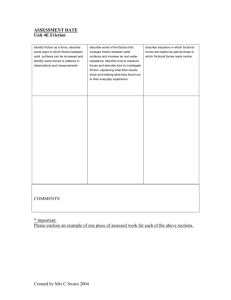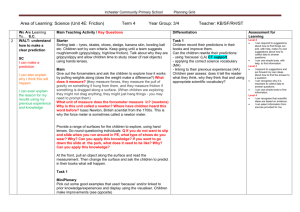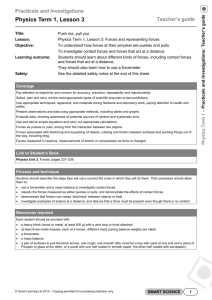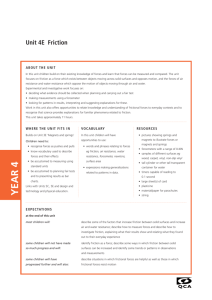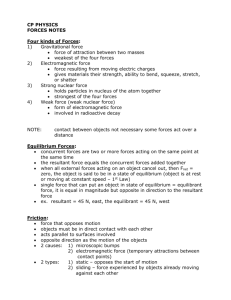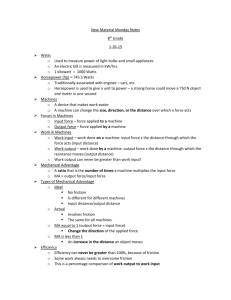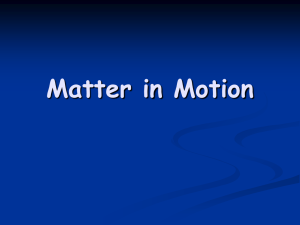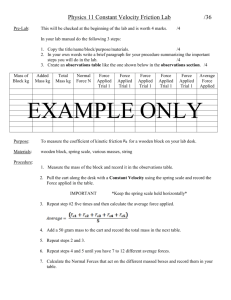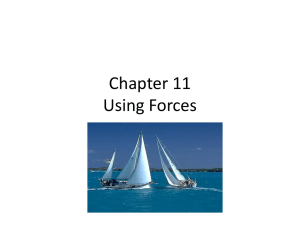Unit 4e friction
advertisement
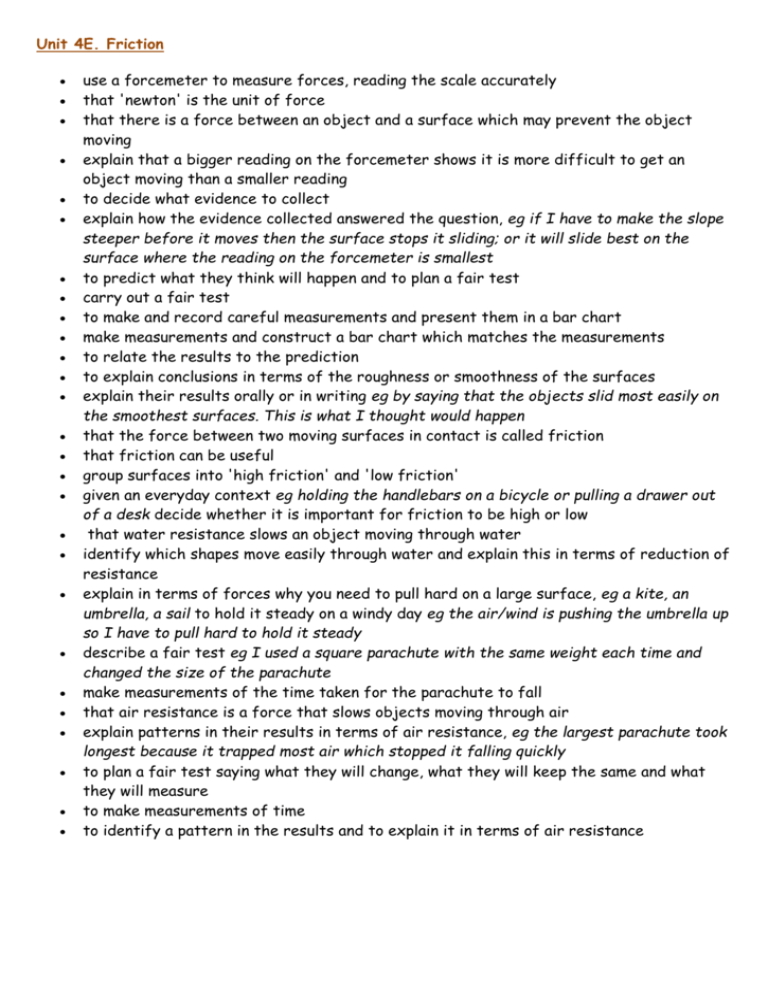
Unit 4E. Friction use a forcemeter to measure forces, reading the scale accurately that 'newton' is the unit of force that there is a force between an object and a surface which may prevent the object moving explain that a bigger reading on the forcemeter shows it is more difficult to get an object moving than a smaller reading to decide what evidence to collect explain how the evidence collected answered the question, eg if I have to make the slope steeper before it moves then the surface stops it sliding; or it will slide best on the surface where the reading on the forcemeter is smallest to predict what they think will happen and to plan a fair test carry out a fair test to make and record careful measurements and present them in a bar chart make measurements and construct a bar chart which matches the measurements to relate the results to the prediction to explain conclusions in terms of the roughness or smoothness of the surfaces explain their results orally or in writing eg by saying that the objects slid most easily on the smoothest surfaces. This is what I thought would happen that the force between two moving surfaces in contact is called friction that friction can be useful group surfaces into 'high friction' and 'low friction' given an everyday context eg holding the handlebars on a bicycle or pulling a drawer out of a desk decide whether it is important for friction to be high or low that water resistance slows an object moving through water identify which shapes move easily through water and explain this in terms of reduction of resistance explain in terms of forces why you need to pull hard on a large surface, eg a kite, an umbrella, a sail to hold it steady on a windy day eg the air/wind is pushing the umbrella up so I have to pull hard to hold it steady describe a fair test eg I used a square parachute with the same weight each time and changed the size of the parachute make measurements of the time taken for the parachute to fall that air resistance is a force that slows objects moving through air explain patterns in their results in terms of air resistance, eg the largest parachute took longest because it trapped most air which stopped it falling quickly to plan a fair test saying what they will change, what they will keep the same and what they will measure to make measurements of time to identify a pattern in the results and to explain it in terms of air resistance
